Water expertise is spread widely across the University of Minnesota. Almost 100 departments around the university have been identified to include water scholarship in their activities. In addition, multiple non-departmental units support significant amounts of water scholarship, as listed here.
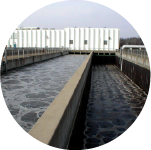
The BioTechnology Institute (BTI) supports world-class biotechnology research at the University of Minnesota and provides critical infrastructure, training, and connections to partners in the state’s thriving biotechnology industry. Through the Biotechnology Training Program and the Graduate Program in Microbial Engineering, and our research initiatives, cutting-edge microbial cell fermentation and downstream processing services, we continue to support research within the University and serve as a vital link to industry partners.
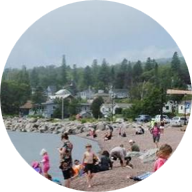
Center for Changing Landscapes
The Center for Changing Landscapes offers social science research services, conservation program evaluation, community assessment training, and research design assistance to natural resource agencies, nonprofit organizations, and communities in Minnesota and beyond. The Center’s researchers specialize in the use of interdisciplinary community-based research methods, innovative multi-methods evaluation, and inclusive project planning. A primary goal of the center is to empower communities and natural resource managers in inclusive and visionary planning and problem-solving for sustainable, livable, and equitable futures.

Center for Science, Technology, and Environmental Policy
The Center for Science, Technology, and Environmental Policy fosters interdisciplinary and community-engaged research on human well-being, environmental sustainability, and social justice. The Center conducts public engagement with external partners, develops environmental leadership, and facilitates solutions-oriented projects at the nexus of science, technology, and environmental policy.
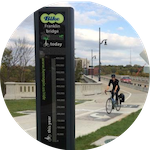
Center for Transportation Studies (CTS)
In collaboration with public-sector, industry, and academic partners, CTS shapes transportation systems that are sustainable, serve the needs of all users, support a strong economy, and improve our collective quality of life. CTS cultivates improvements and innovation in transportation through research, engagement, and education. CTS works with faculty and research staff in over 30 departments across the University of Minnesota to address a wide range of critical transportation topics, including Safety, Equity, Access to opportunity, Sustainability, Resilient infrastructure/materials, and Future mobility technologies.
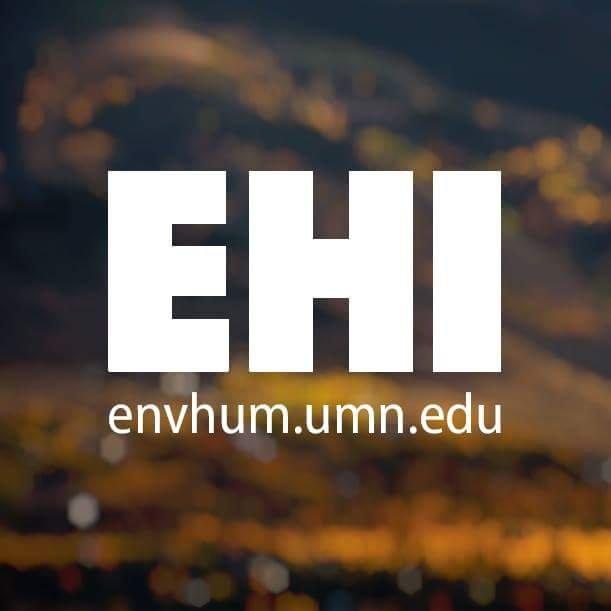
Environmental Humanities Initiative
The Environmental Humanities Initiative (EHI) is an interdisciplinary collective of faculty and graduate students committed to the exploration of environmental issues through a humanistic lens. EHI members engage a wide range of fields and topics, including water, Indigenous studies, food studies, geography, cultural anthropology, and sustainability, among others.
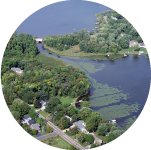
The University of MN Extension serves to explore, understand and conserve the natural landscape. Through our education, volunteer and community science programs, people can become stewards of Minnesota’s public and private lands.

At the Institute on the Environment (IonE), we envision a world in which sustainable agriculture feeds the world; renewable energy powers healthy homes, efficient transportation and flourishing businesses; every person has access to food, water and shelter; oceans, lakes and rivers are clean and healthy; communities have vibrant economies, neighborhoods and cultures; and thriving ecosystems support thriving economies and societies. Overall, humanity restores and renews resources for the benefit of all living things.
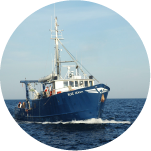
Less than one percent of Earth's water is fresh, liquid, and accessible, and most of that is found in a handful of huge lakes scattered around the globe. The Large Lakes Observatory is dedicated to performing innovative, cross-disciplinary research, education, and outreach that advance scientific understanding of Earth’s large lakes for the benefit of society and the sustainability of freshwaters.
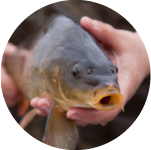
Minnesota Aquatic Invasive Species Research Center
The Minnesota Aquatic Invasive Species Research Center (MAISRC) is dedicated to fighting the spread and impact of aquatic invasive species on Minnesota’s beloved lakes and rivers. With a solid foundation of research below our feet and exciting new projects underway, MAISRC is well-positioned to build on past success and inform real-world solutions in the coming years. Thanks to MAISRC’s research, we can find invasive species earlier, we can better respond to new infestations, and we have developed new tools to control established populations.
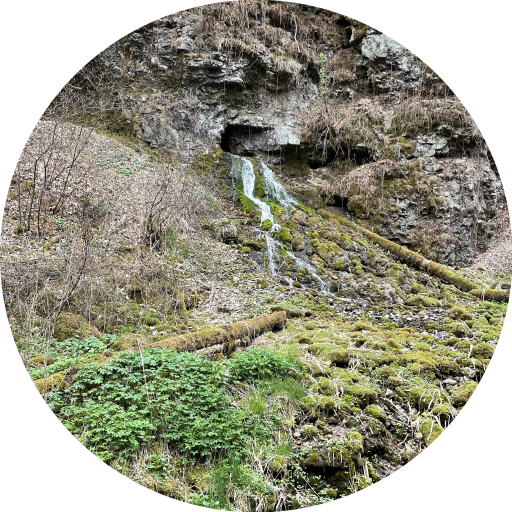
The Minnesota Geological Survey (MGS) is a research and service arm of the Newton Horace Winchell School of Earth and Environmental Sciences at the University of Minnesota. The MGS serves the people of Minnesota by providing systematic geoscience information to support stewardship of water, land, and mineral resources. Our activities are especially relevant to groundwater research and management. We work closely with University, government, industry, and community partners on a wide variety of groundwater quantity and quality concerns.
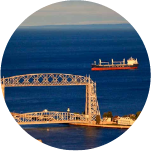
The vision of Minnesota Sea Grant is to promote a present and future where citizens use science-based understandings of the environment to address issues concerning Lake Superior and Minnesota's aquatic resources and associated economies. Minnesota Sea Grant’s mission is to inform and facilitate interaction among the public and scientists to enhance the communities, the environment, and the economies along Lake Superior and across Minnesota's inland waters by identifying information needs, supporting scientific research to address those needs, translating the resulting science into actionable information, and communicating those results to the public.

The MnDRIVE Environment program supports research and partnerships that develop sustainable solutions to environmental grand challenges, thereby enhancing quality of life and economic vitality in Minnesota and beyond. MnDRIVE Environment values proactive and long-lasting solutions that are environmentally, economically, and socially sustainable. We focus our efforts around three critical areas of research:
- Reducing climate change by increasing carbon sequestration
- Enhancing nature’s benefits to people by conserving or restoring biodiversity
- Cleaning the air, soil, and/or water by preventing and reducing environmental contaminants
Our initiative is part of a University-wide partnership between the University of Minnesota (UMN) and the State of Minnesota that aligns areas of research strength with the State’s key and emerging industries to address grand challenges. MnDRIVE – Minnesota’s Discovery, Research, and InnoVation Economy – supports research in five strategic areas: Brain Conditions, Cancer Clinical Trials, Environment, Global Food, and Robotics.
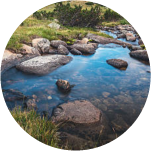
Natural Resources Research Institute
The Natural Resources Research Institute was established by the Minnesota legislature in 1983 as an applied science and engineering research organization to inform state citizens and decision-makers while leveraging the power of the University of Minnesota. As part of the University of Minnesota system research enterprise, NRRI employs over 140 scientists, engineers, technicians, staff and students in two industrial research facilities. Through collaborative partnerships, we deliver the innovative tools and solutions needed to utilize and sustain Minnesota’s precious natural resources.
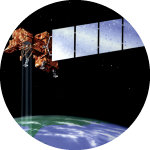
Remote Sensing and Geospatial Analysis Laboratory
We are an informal, interdisciplinary group of faculty, staff scientists, students and postdocs from three University of Minnesota colleges, who collaborate on developing procedures to measure water quality of inland waters (lakes and rivers) by satellite imagery. We also analyze the satellite-derived data to develop better understanding of spatial and temporal variations in water quality, especially at large (ecoregion) scales. In the more than 20 years our core group has worked together we have seen vast improvements in satellite technology and in the techniques used to retrieve useful water quality information from satellite imagery. Our work has contributed significantly to the development of the field from a new and untested science area to a mainstream approach for obtaining regional scale water quality data.
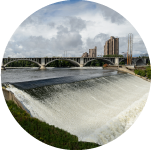
The St. Anthony Falls Laboratory (SAFL) is an interdisciplinary fluid mechanics research lab and educational facility under the College of Science and Engineering at the University of Minnesota. We are engineers and scientists who collaborate across disciplines to solve fluids-related problems in the Earth-surface environment.
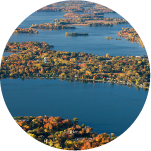
The University of Minnesota’s Water Resources Center provides leadership in freshwater management through cutting-edge research, educational opportunities for students and professionals, and community outreach. For students, WRC provides a critical link to water-resources professionals and access to all the University’s water-related programs. For citizens and professionals, WRC provides oversight of community-based programs and training and assistance with issues related to impaired waters, stormwater management, agricultural practices and global water issues.